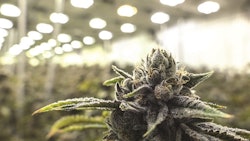
Out-of-state visitors to Hawaii can now obtain medical cannabis during their stay after the Department of Health established a program to grant 329-OSP cards to non-residents who show the proper medical credentials.
Visiting patients are eligible to participate in the program if they use medical cannabis for one or more of the qualifying conditions recognized by Hawaii and have a valid medical marijuana registration card from a U.S. state or territory, as well as a valid government-issued ID from the same state. If these requirements are met, travelers can apply for the card by paying a fee and completing an online application with the Hawaii Department of Health, which can be done up to 60 days prior to arrival.
“The Hawaii State Department of Health has worked to make the application process as seamless as possible and has set up a fantastic new electronic portal to improve access,” Pedro Haro, executive director for the Hawaii Educational Association for Therapeutic Healthcare (HEALTH) told Cannabis Business Times. “The application can be found on the DOH’s website and takes about 10 minutes.”
The card provides visiting patients access to medical cannabis dispensaries for up to 60 days, and it can be renewed one additional time.
Hawaii currently has dispensaries located on the islands of O'ahu, Maui, Hawai'i Island and Kaua'i; there are no dispensaries on the islands of Lana'i or Moloka'i. Out-of-state patients granted a 329-OSP card can shop at any of the state’s dispensaries and can legally possess up to four ounces of usable cannabis, but the state has rules regarding transportation, Haro said.
“All cannabis products must be transported in a sealed, opaque container,” he noted. “Federal law prohibits transport of cannabis over the ocean or on federal lands, so patients may not legally transport cannabis products between the American continent, inter-island or within the boundaries of any national park in Hawaii.”
In addition, Hawaii has strict laws on smoking, Haro added, which visitors should also understand.
“Hawaii has some of the most rigorous smoke-free laws in the nation,” he said. “In general, smoking or vaporization of any product is prohibited in all public areas including hotels, stores and restaurants. Additionally, smoking is prohibited in county and state parks and beaches, as well as within rental vehicles.”
Most of the state-licensed dispensaries offer non-smokable cannabis products, Haro added, such as tinctures, capsules, lozenges, extracted oils, concentrates and topicals. Edible cannabis products are prohibited.
Overall, granting travelers access to medical cannabis will have a positive impact on both patients and the state’s medical cannabis businesses, Haro said.
“The dispensary operators receive phone calls and emails from cannabis patients who need safe, legal access to cannabis products while visiting the islands,” he said. “The 329-OSP card is a way to ensure they receive that access without negative impacts to our residents.”
Medical marijuana patients residing in Hawaii may also reap benefits, Haro added. “The new electronic card system developed for visitors has been extended to residents, which will expedite card processing. Plus, the high compliance costs for dispensaries can now be shared among more patients which, in time, should bring product prices down for all patients. It’s a win-win for all concerned.”

























